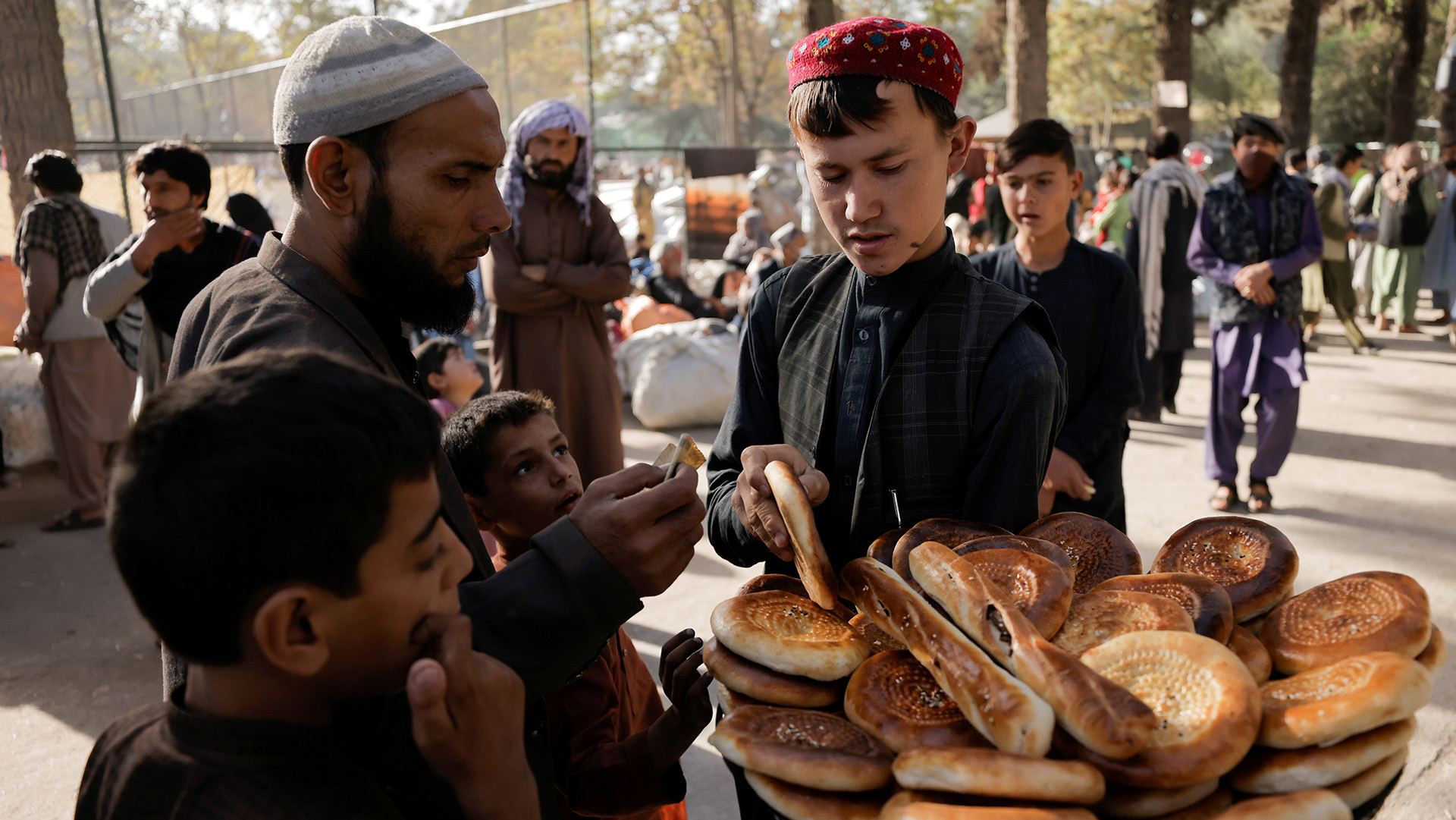Donor support for Afghanistan must include civil society and diaspora groups – or risk eroding local skills and fuelling aid dependency. Without proper support, Afghan-led groups will suffer, and the civil society capacity that has been built over the past 20 years will begin to crumble.
Donors and governments responded to the Taliban's August resurgence by redirecting most long-term development aid to immediate humanitarian needs, often through UN agencies or big international NGOs.
Such moves are intended to ensure that funds don’t go directly to the de facto governing authority. It’s a predictable reaction from the international community, but the pendulum must not swing too far. Proportional humanitarian, development, and peacebuilding funding remains essential, as is the need to fund local civil society.
Afghanistan’s humanitarian needs are well-documented. The economy is collapsing, and hunger is growing: More than half the population could face crisis or emergency levels of food insecurity as the bitter winter months approach.
The shift to humanitarian funding is pragmatic, and will undoubtedly save countless lives in the short-term. But what was important for Afghanistan’s long-term development before August is still vital today.
Development needs – such as improving agricultural techniques or delivering long-term education programmes – haven’t disappeared. If anything, they will become more essential. And the local civil society groups and professional aid workers that are the backbone of any aid operation in Afghanistan will be crucial to meeting these needs.
Brain drain
Afghan civil society has matured and professionalised over the last 20 years. Across the country, men and women have worked side by side to deliver a vast range of services and life-saving assistance to other Afghans in need. Whether it be through water and sanitation projects, food security, demining, healthcare, or education, Afghan civil society actors have played an important role, and continue to be on the front lines today.
Since the Taliban takeover, however, local civil society organisations have been disproportionately affected by cash shortages and an exodus of talented aid staff. Many have fled to other countries, and many more are planning to leave – especially those in positions of management and leadership.
There are multiple reasons behind the brain drain: Some have fled because they fear for their lives or basic rights under the Taliban; others who might otherwise be willing to stay are driven away because of the dire economic situation.
“Smaller civil society groups will have the most difficulty withstanding the shocks.”
This loss of institutional memory and talent is a huge hit to all aid groups – whether they be homegrown civil society organisations or international NGOs, which are also staffed mainly by Afghans. But the much smaller civil society groups will have the most difficulty withstanding the shocks.
Sanctions and other restrictions have made it much more complex – and costly – to get cash into the country. Some donors are taking a “wait-and-see approach” regarding how they will continue to engage with Afghanistan. Many donors and governments are relying even more heavily on international agencies and NGOs.
Given that local organisations are unable to weather a cash crunch like larger INGOs, many are quickly running out of cash and are re-considering their future. As donors freeze, reallocate, and pivot funding, there is a real risk that local civil society groups will be left by the wayside.
In Afghanistan, as in much of the world, most humanitarian and development funding is channelled through international aid agencies. The global aid community has pledged to reverse some of this imbalance by localising humanitarian aid.
Despite today’s immense challenges, these commitments are just as crucial today as they were when they were made as part of 2016’s Grand Bargain aid reforms.
Providing support to local groups – either directly, or through more equal partnerships with international NGOs – will be key to stemming the brain drain and preserving the capacity of Afghan civil society.
Beyond borders
The need to support local aid in Afghanistan is as strong as ever. The same applies to groups in the diaspora, including refugee-led organisations, who have helped Afghans both in and out of the country.
Given the tightening of civil society space inside Afghanistan, the role of the diaspora, including refugee-led groups, is even more important.
The Asia Pacific Network of Refugees, for example, has helped Afghans leave the country, and pushed for greater protections for refugees and migrants abroad. Through networks within Afghanistan, diaspora groups have helped provide food and supplies, as well as safe lodging to women at risk.
All of this has been achieved through donations from crowdfunding and other community campaigns. This work has been grounded and led by local organisations and individuals in Afghanistan, with virtual consultations held between the diaspora and local organisations to ensure that outside support meets the on-the-ground needs.
“Given the tightening of civil society space inside Afghanistan, the role of the diaspora is even more important.”
Like local civil society organisations, diaspora and refugee-led groups are often under-funded, and rely on goodwill and the energy of volunteers. Some donors are supporting refugee-led initiatives by asking larger, established organisations to accept the money and pass it on while absorbing administration fees. But this is the exception rather than the rule. If the diaspora is to have a real chance to continue making a difference at this pivotal juncture, it needs sustained resources.
Afghanistan’s new reality is complicated. There will be hurdles ahead for the global aid community – from transferring funds, to sanctions and political risks. But these difficulties must not be an excuse to shy away from commitments to support Afghan-led aid.
Afghanistan’s short-term humanitarian needs, and its long-term development goals, can only be addressed by working with Afghans at home and abroad in a genuine partnership.









